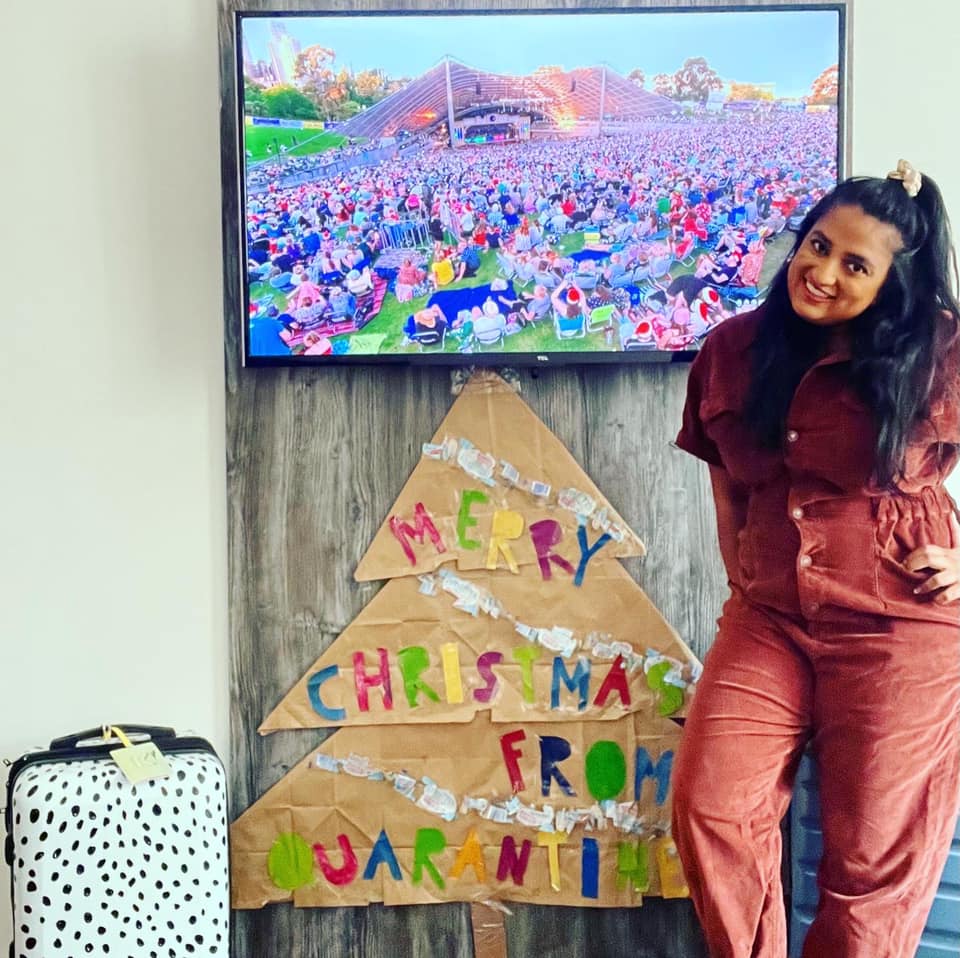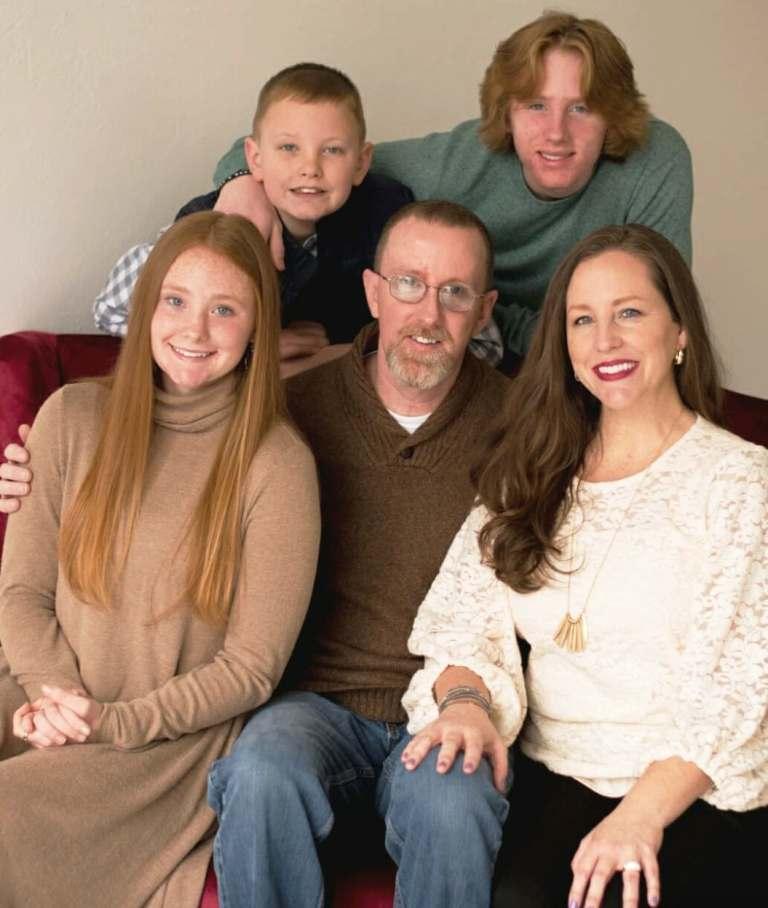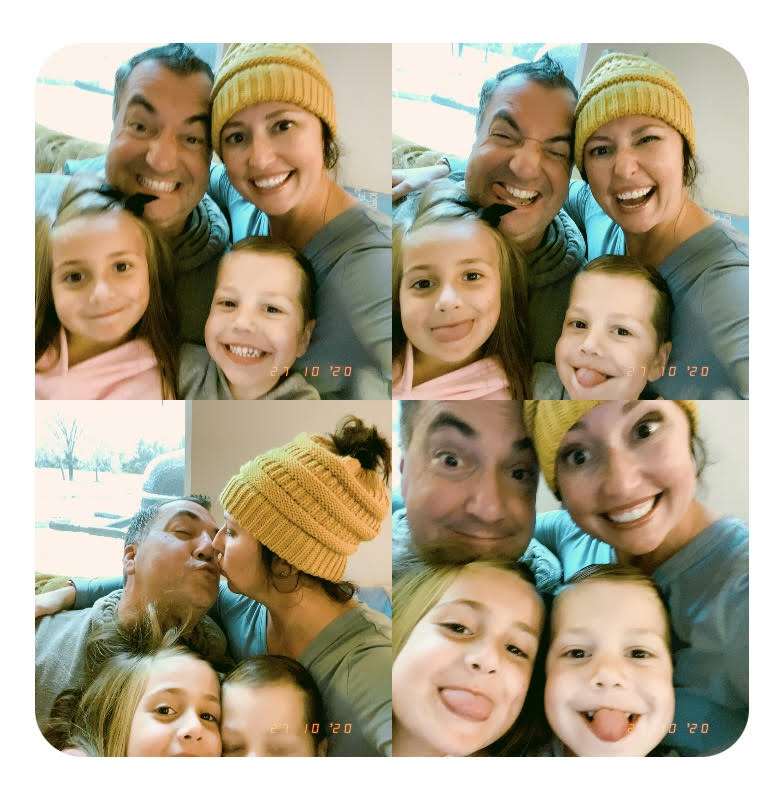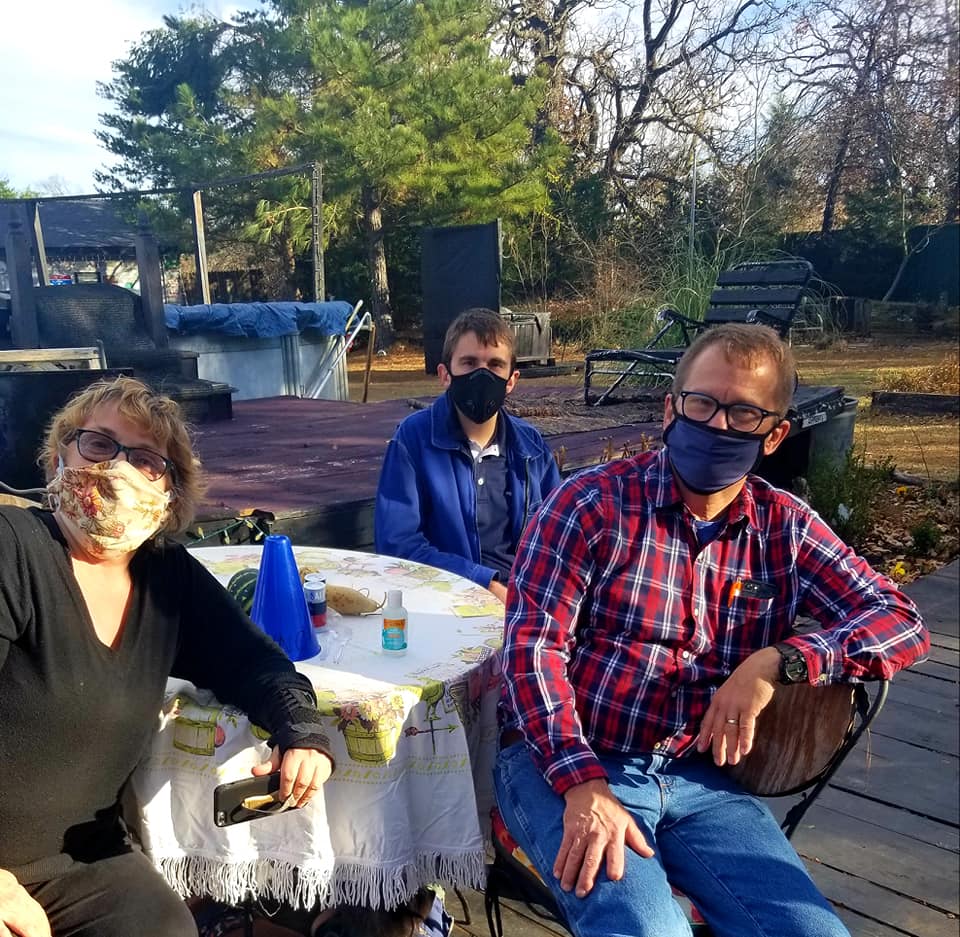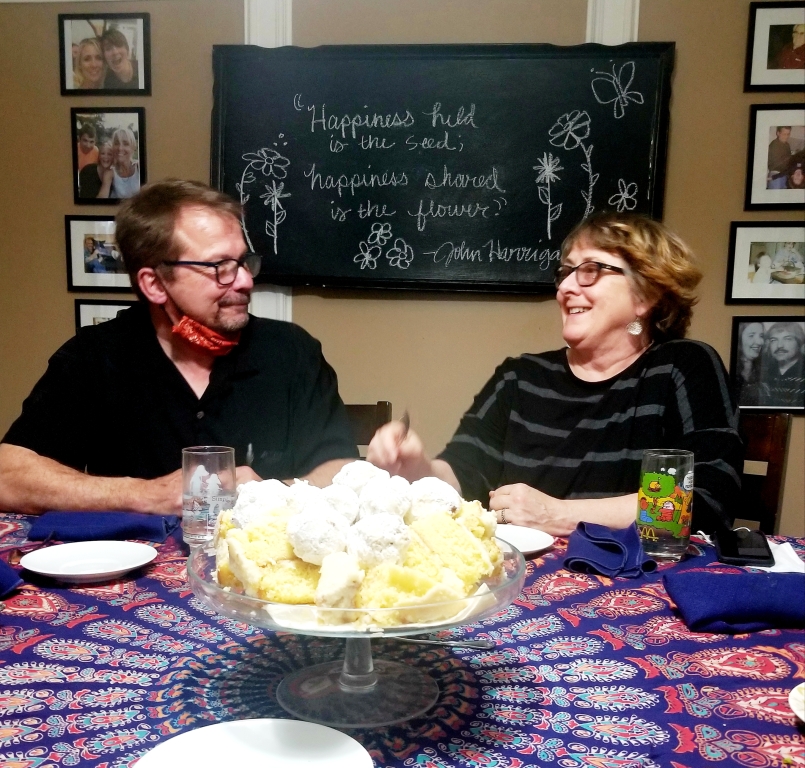A year in pandemic spurred many of us to reevaluate life in unexpected ways, and maybe we made some adjustments or adopted new hobbies; but how many of us uprooted ourselves and moved across the country to buy a boat, and then live on it? Please meet Steve.
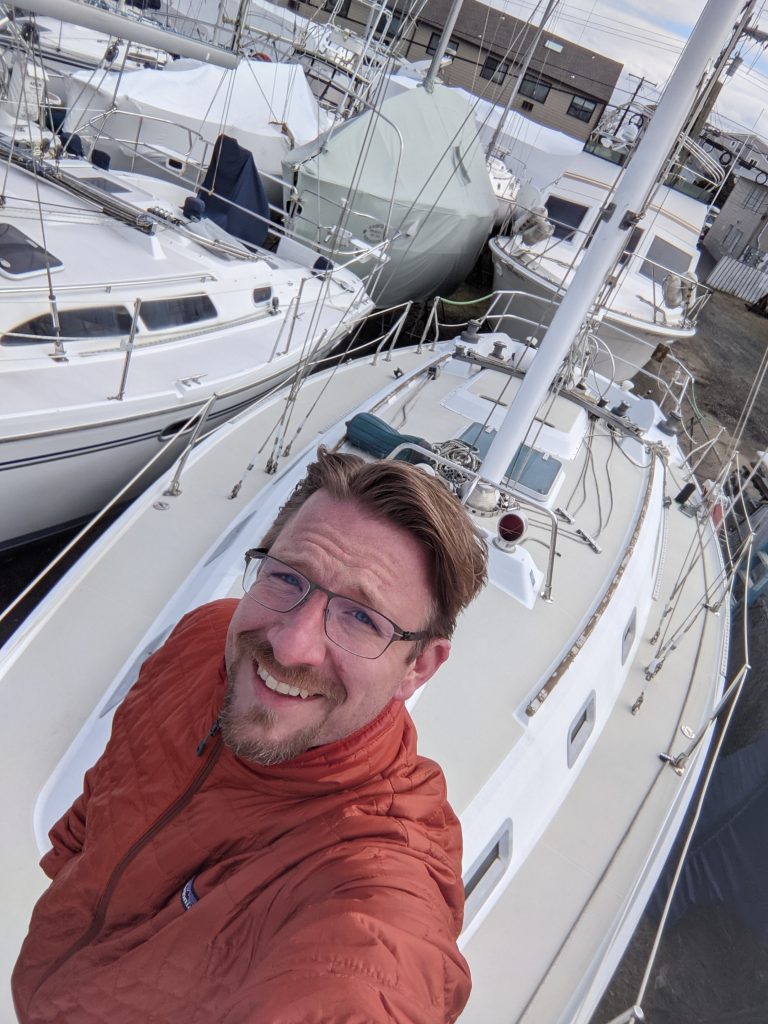
In late February, 2020, Steve was in Boston at a large gaming industry convention when pandemic hit the United States. In fact, he was in a huge, closed building filled with more than 80,000 people just as that city was being identified at a covid-19 “hot zone.” News spread quickly, and he soon received a call from the company’s CEO offering the option to shut things down early and get home. Steve was already a stickler for personal health and hygiene, citing long standing habits to ward off the dreaded “Con-Crud,” so he decided to close out the show as planned. His own journey back to his then home in Los Angeles overlapped just two or three days with the country’s fast and hard shut down. Looking back on that week, he considers it “wildly lucky” that neither he nor any of his colleagues contracted the deadly new virus.
That plane ride back to LA was the last time he flew all of that year. Compared to 2019, when he logged 170 hours in flight, that was a steep nosedive and one that precipitated a series of hard questions and life changes.
Leading up to that trip to Boston, he and his girlfriend Audrey had been planning and preparing for a big, Irish style party aimed at Saint Patrick’s Day in March. They had already purchased thirty pounds of corned beef, almost as many pounds of potatoes, a case of Guinness beer, and four bottles of Jameson. They were seasoned hosts, old hats at feeding and entertaining their large circle of friends (the Girl Gang, as Steve called them) for frequent cookouts. The Irish party was nothing new, except that it was also meant to be a belated housewarming to celebrate the pair having put down roots together the year before. When the pandemic changed everyone’s plans, Steve and Audrey found themselves suddenly over-supplied with meat, potatoes, and alcohol. Their freezer was packed! That, plus good general home organization and a bizarre bequeathment of specialty Japanese toilet paper from Steve’s late grandmother (this very good story probably merits its own blog post), meant that emergency shopping was unnecessary. They simply thawed small amounts of corned beef every other month and supplemented their potatoes with grocery deliveries from local companies.
Steve is the Vice President of marketing for a successful video game company. They occupy a fascinating niche focused on making a positive social impact on the world and interfacing with education and documentary-style entertainment. They have earned prestigious awards for their efforts and were invited by the BBC to develop a game related to The Blue Planet series. Most of his job keeps him traveling frequently and networking with people by the thousands. When travel came to a screeching halt, he felt lucky to have already pivoted to a fully remote environment two years earlier. The digital predisposition of the entire industry translated well. In June, 2020, in response to pandemic, the rest of the Arizona-based company also went fully remote. That same month, their newest video game released.
In fact, throughout the first half of the pandemic, his industry enjoyed booming business. He told me about deep sea divers who couldn’t get to the ocean but could suffice their appetites somewhat by playing his games. He clearly seemed proud of the family-oriented, education based material. “It filled a need” so many people were experiencing, and “it has a soothing soundtrack.”
Quarantine life in Los Angeles was a mixed environment, “a whole wishy washy, push-pull situation.” Much of the public was resistant to wearing masks and staying home, so Steve felt thankful that his peers took it seriously. They talked on Zoom plenty, had a handful of small lunches in backyards, and made front porch soda bread drops just to do wellness checks on each other. His main focus for much of the year was keeping his people safe and looking forward to vaccines when they became available. His parents are in North Carolina, and like many people in our generation Steve found himself in the brand new position of “parenting upward.” His nagging and shaming tactics worked, and eventually they did come around to take their own healthy seriously.
We talked a little bit about politics, but Steve was guarded. He displayed a mellow, almost neutral view of how politicians at large handled the pandemic. Or maybe he has strong opinions and hid them from me, choosing instead to express compassion for people making tough decisions. Regarding specifically the vaccine rollout, he said, “There were no real winning solutions for politicians.” We waded ankle deep in other political topics, and if time ever allows I want to hear more of Steve’s thoughts on how the then-President and his cabinet could have better led the country during shut downs, social upheaval, and more. His public relations education and background provides a great perspective: “I think the pandemic was bungled by most politicians, particularly the guy in the white house at the time, to the detriment of our entire country.”
While staying home did not hamper his effectiveness at work, the sudden lack of travel did reveal a need for something, a need that could not be filled with backyard lunches and baking bread. He began to feel restless and ached for something far off. What illustrated and proved the idea to him was a long road trip he made to Virginia Beach in September. His best friend from college, and his wife, had just welcomed their first child during quarantine, so Steve rented a car and drove east for four days, not stopping to see any sights, treating every hotel room like a crime scene and bringing much of his own food to avoid restaurants and retail exposure as much as possible. It was an out-and-back trip that afforded him many hours of self reflection. He soon realized how heavily he had been relying on travel to soothe an itch. It was hardly a lack of love for the people in his west coast life, but maybe just for the place. Maybe it was just the far removal from the east coast waters where he was raised. As beautiful as California was, as filled as it was with his beloved friends, it wasn’t where his heart needed to be. And he decided to face that.
Steve had grown up not just near the Atlantic Ocean but on it. Native to New York, he and his Dad spent years sailing together competitively. Steve has lived in a life jacket since he was a little boy. Boats and saltwater and a wild competitive streak were in his bones. All of it was part of him.
He missed it, to say the least, living in Los Angeles these past five years, and moving around the country before that for college and various jobs. Sailing was a fundamental part of his identity which he had been neglecting, and the stillness of those months in pandemic helped him see the personal neglect more clearly. He realized that he wanted to move back east and buy a boat, a legitimate, seaworthy, liveaboard cruiser.
This began a long, painful process of unearthing his deepest desires and presenting some new truths to the woman he loved, with whom he had just barely missed celebrating a Jameson-soaked housewarming. As he described some of this process to me, those first sad, difficult conversations, he was visibly moved and spoke tenderly. This life change is still fairly raw, and he obviously still holds deep affection for Audrey.
Steve turned forty in October, so he had to actively eliminate the possibility that this was a classic mid life crisis. He examined himself. He asked himself all the good, hard, necessary questions and did not rush into anything. “This was not a flight of fancy.” Steve took this so seriously that he also consulted with his mental health professional to kind of run it up against their wisdom, make sure he was making a sound examination of his own heart.
“If not now, when?” In February, 2021, he made his final drive east, “this time for keeps.” Pandemic not only caused him to feel uncomfortable; in many ways it also proved to be the perfect time to make some big changes. Once Steve decided to uproot himself and begin this new chapter, the Universe started dropping pieces into place like magic.
Audrey was supportive and loving about his move, though they both were heartbroken. They sought to make a conscientious uncoupling and are trying to remain friends now. She even sent him an inflatable pirate ship to keep his newly purchased slip from being vacant while he waits for his real boat.
His parents were also supportive of his return to the nest, offering good, aka free rent for the space above their garage. Steve and his two rescue cats are living there while he remodels his boat. All he has to do in exchange for room and board is cook the family meals. Citing the vacuum of good Mexican food in North Carolina, he favors that and Thai food for expanding their culinary horizons. So far the reviews are mixed. If his Dad says a dish is “interesting,” that means he likes it. If, however, he calls it “different,” that’s a clear down vote. I asked Steve whether his gracious parents have enforced a curfew on him. He burst into slightly aggressive laughter, leaned all the way forward way to the computer screen, and almost shouted “Marie there is nowhere to go to NEED a curfew!” He came from Los Angeles, with a bustling population of ten million people, to a small town with just thousands, and at 40 is lowering the average age there considerably. Ha!
Adding to the synchronicity, Steve found his dream project boat almost immediately upon deciding to move and just a few weeks before he did finally head east. An online group conversation led him to a 1984 boat in New Jersey, whose previous owner had just retired to Puerto Rico. The buyer-seller timing was perfect, the vessel is thirty-eight feet long and well suited for living on, and it needs exactly the kind of refit-and-restore modernizing Steve craves to do. Also? He got a great deal.
After one brief hiccup with the CEO of his gaming company, who did not immediately understand that Steve was moving east for good, all is well. He is smoothly working remote, has the boat title in hand, and should receive it to his slip this May. In the meantime, he is in remodel planning mode and practicing a streamlined kitchen routine. He and his Dad also raced together recently, placing second after a decade long hiatus!
“It is wildly surreal,” Steve said, gushing. He is no longer just thinking about this dream; he is acting on it. He never planned to be at this point in life, so young, and he is grateful to be getting after it while he is healthy and able. We chatted about the pitfalls of waiting too many years to live fully, but then he surprised me. He gently suggested that every chapter can be valuable, that everything we do leading up to (what we think of as) our dreams can serve us. He seemed to be saying that we don’t always have to dismiss chunks of time as delays, because they are all part of our story. They all have immense value.
I was big time intrigued by this remark and asked him to indulge me. I wanted to know what he would say to high school seniors or college graduates, to young adults about to launch. Steve’s own college path was pretty fascinating, leading him from one interesting major to another, specializing him eventually in public relations and politicking (ahhh that’s where the diplomatic answers came from). Then his career took lots of meandering, but always fruitful, curves. So how does one know he is on the right path?
Steve spoke firmly about striving to “balance better from the word go,” rather than focusing solely on either work or relationships, or any other single aspect of life. They are both important. It is all important. We are complex creatures. He said you have to “chase your happy,” regardless of what’s going on around you. His advice was different from a typical motivational speech, because he pressed into balance. He pressed into the satisfaction of a good, meaningful career as well as fulfilling relationships. He talked about being honest with yourself and living with authenticity. “The judgment of others is an utterly useless currency.” He said he would urge kids to not be scared of change and that if they crave something, it is always worth looking into. It’s good to be okay with being uncomfortable, he repeated.
I asked about his spiritual life, because so much of his journey seems to have been directed and touched by unseen forces. He was raised Catholic but now identifies as mostly atheist (whoops, here comes rent!). He does not believe in visualization per se, but he does seem intrigued by the undeniable patterns in his life. He definitely supports self reflection and asking for help when you need it. He also believes in self discipline. “If I say the thing, I’m gonna do the thing.” As we talked a little more about his difficult but already rewarding journey this past year, he blew me away with his version of something I think all the time: “I will honor the difficulties of the decision.” He intends to do everything he can to not squander the opportunity, for everything that was lost to get here. He trusts that everything will work out, that he will be better for it all, and that others will be okay too. In fact his concern for how he affects the people in his life was palpable.
A year and change after that last flight home from Boston, Steve is still not craving corned beef anytime soon, but he does still love to cook. He still has his two cross country cats with him in North Carolina, and so far has not suffered a parental curfew for living above their garage. He still works remote for the video game company and is actively fascinated by how the industry might evolve in the post-pandemic world. Will massive public conventions return? If so, will they establish a proof of vaccine policy? Time will tell.
His boat project is coming along nicely, though, appropriately, she is nameless as of this writing. As with drivers of classic cars, a boat captain has to become acquainted with the vessel, has to understand her personality and “have a serious conversation,” before suggesting a moniker.
Steve remains close friends with Audrey, and he dips into the LA Girl Gang Zooms as often as possible.
Most inspiring to me, he stands wide eyed and responsive to the ongoing Truth of his life. He wrangles discomfort, determines his own path, and follows it thoughtfully. His voice sometimes shakes, but his resolution does not. And I love this.
“You don’t want to outsail your boat,” is one of the last things Steve offered me before we said goodbye. He described the lifelong learning curve of sailing, of how a person can be experience-heavy but knowledge-light, as he assesses himself right now. He was electric when he talked about it, about the competence, physical ability, and wisdom needed to face down challenges on the water, and how a captain can easily discover himself “outclassed by the situation,” so he has to prepare.
He is excited to race more often, live on the water, and explore the coastline. He is excited for every challenge, and I have every confidence that his brave honesty, steadfastness, and work ethic will braid together for an unforgettable adventure.
“I’ll be alright,” Steve said, even if this idea fails. And I agree with him. He posses that inner compass that will make sure he finds his way, always.
May we all find that compass and never let it go.
XOXOXOXO
